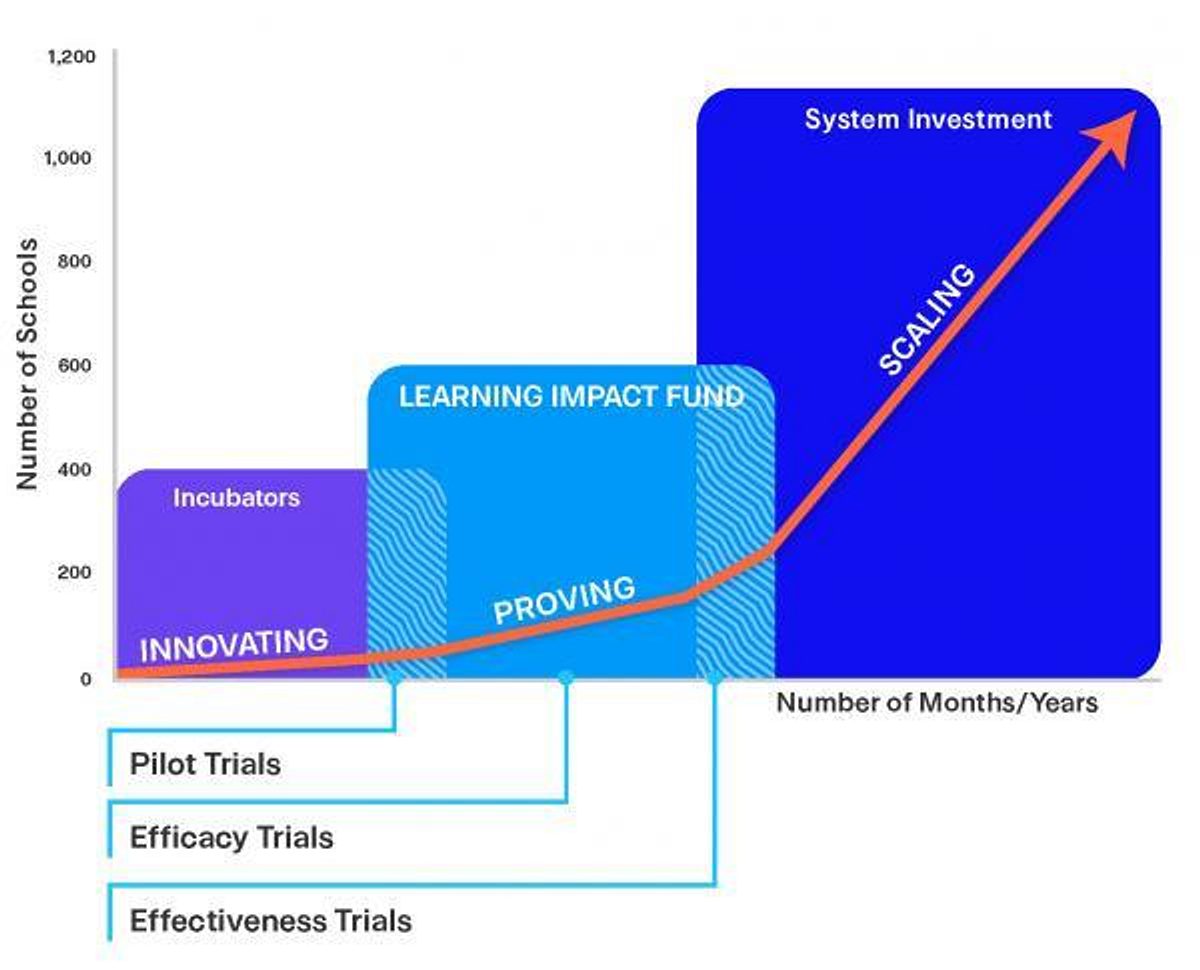Before starting to seek the funding necessary for your trial, ask yourself the following questions:
- Is there evidence of promise that your program will have a positive impact on academic achievement for Australian children?
- If your program works, can it be scaled up affordably and effectively?
- Does your program focus on addressing an important educational challenge in Australia? For example raising the achievement of economically disadvantaged students.
These were the questions we asked applicants while running our Learning Impact Fund.
If you believe there is evidence your program will have a positive impact, can be scaled up, and is addressing an important educational challenge in Australia, then the next step is to choose a type of trial that best suits your program.
Pilot trials: Test the effect of programs and support their codification prior to large-scale research trials through an independent developmental evaluation.
Efficacy trials: Evaluate the effect of well-codified, promising programs to test whether they can deliver on their promise under ideal and ‘controlled’ conditions, and support its codification prior to scaling across more schools.
Effectiveness trials: Evaluate the effect of well-codified, promising programs to test whether they can deliver full-scale as intended, across more schools under ‘real world’ conditions.
Programs that have demonstrated impact in the effectiveness stage may be good candidates for system investment and support for further scale.

The diagram above shows where in a program’s lifecycle that different types of evaluation are suitable. Two main features of a program will determine its place along this continuum:
- The degree to which it has been well-defined and codified.
- The strength of the evidence that it is effective.
Here’s what the timeline for a trial might look like, based on our experience with our Learning Impact Fund.
Planning Stage
- Independent evaluators are appointed.
- The applicant, the evaluator and funding body will work together at a first set-up meeting to develop a detailed project plan, evaluation design and budget.
- Investigate potential for co-funding with strategic partners in addition to any co-funding you have already identified.
- Specific, costed plans for project delivery are made, based on the outcomes of the first set-up meeting.
- Milestones are set to assure successful delivery of the project.
Delivery Stage
- In Evidence for Learning’s experience, there would typically be four and six months between the funding approval of a project and delivery beginning in schools. This lag allows time for recruitment of schools, delivery of training and evaluation set-up.
- A delivery timeline is agreed during the planning stage outlined above.